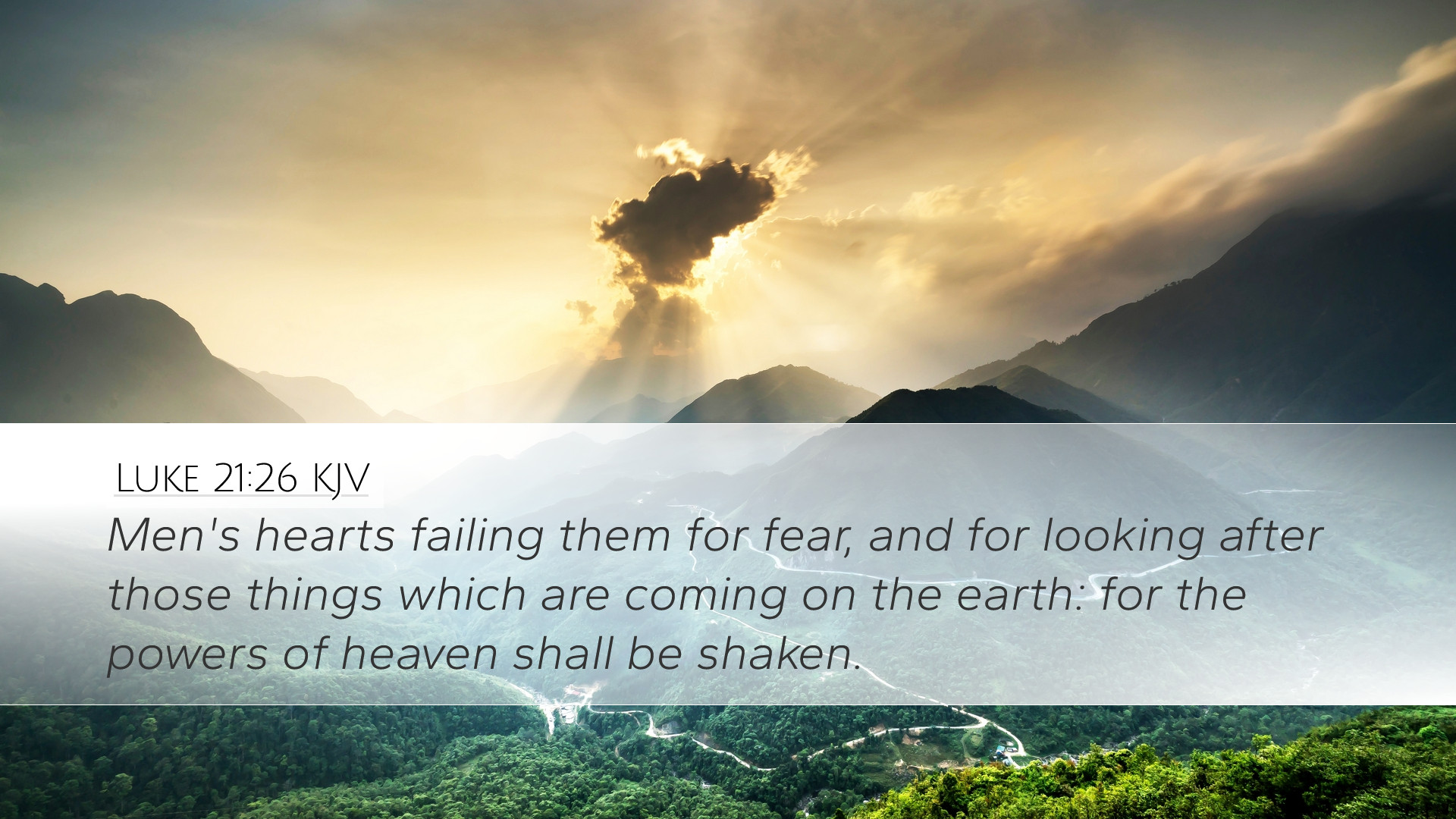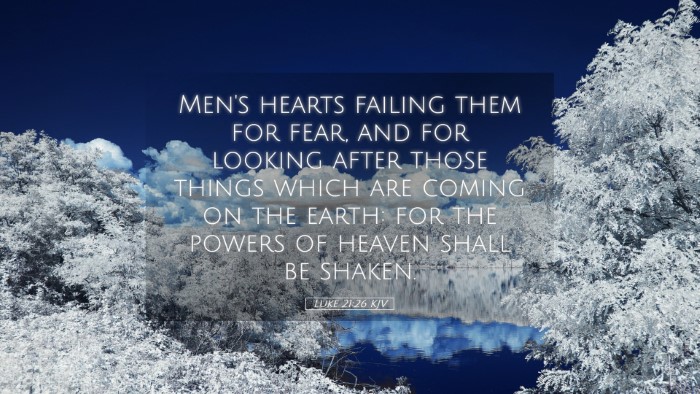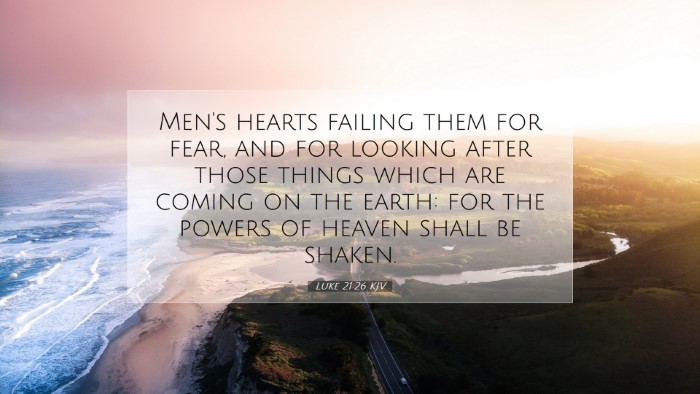Bible Commentary on Luke 21:26
Verse (Luke 21:26, KJV): "Men's hearts failing them for fear, and for looking after those things which are coming on the earth: for the powers of heaven shall be shaken."
Context Overview
In this passage, Jesus speaks of the signs that will precede His return and the end of the age. The discourse is set during the Olivet Prophecy, where Jesus foretells the destruction of the temple and provides insights into eschatological events. Particularly in Luke 21, the emphasis is on the subsequent distress and fear that will grip humanity as apocalyptic events unfold.
Exegesis of the Verse
This verse captures a profound moment of human vulnerability as societal structures and natural orders are disrupted. Here, we see:
- Fear and Anxiousness: The phrase "men's hearts failing them for fear" suggests an overwhelming terror that paralyzes humanity. The impending disasters create an atmosphere of anxiety.
- Expectation of Events: "Looking after those things which are coming" highlights a frantic anticipation among people, illustrating how future terrors can preoccupy hearts and minds.
- Cosmic Disturbance: The "powers of heaven" being shaken indicates a celestial upheaval, symbolizing that the heavens themselves reflect the uncertainty and turmoil of humanity's condition.
Commentary Insights
Matthew Henry's Commentary
Matthew Henry notes that this verse points to a time when the terror of the approaching calamities will cause men to lose heart. He interprets the failing of hearts as both a physical and spiritual collapse, where individuals are so overwhelmed by fear that they cannot respond adequately. Henry emphasizes that such profound fear is often rooted in a lack of faith and recognition of divine providence.
Albert Barnes' Notes
Albert Barnes expands on the idea of fear being compounded by anticipation of disaster. He asserts that the "things which are coming" refer to the trials and tribulations that precede the second coming of Christ, affecting even those who are not immediate recipients of such events. Barnes suggests that this turmoil is both a sign of God's judgment and a call to readiness, urging believers to look beyond fear to their hope in Christ.
Adam Clarke’s Commentary
Adam Clarke elucidates this verse by discussing the phrase "the powers of heaven shall be shaken." He posits that this refers not only to physical disturbances but also to the collapse of spiritual and moral order that accompanies such chaos. Clarke speaks of the societal implications, indicating that when the world is faced with calamity, it reveals the frailty of human strength and the necessity for faith. He offers a pastoral viewpoint by encouraging believers to remain steadfast, grounding their hearts in the peace of God amidst external turmoil.
Theological Implications
This verse poses significant questions for theological understanding, particularly in eschatology, soteriology, and pastoral care. The examination of fear indicates:
- The Nature of Fear: Fear can lead to paralyzing hopelessness, challenging believers to confront their anxieties with faith. It serves as a reminder of humanity's frailty and the ultimate need for God's strength.
- The Response to Crisis: Believers are called to interpret fear not as a reason for despair but as an opportunity to reaffirm their hope in Christ. The eschatological context urges Christians to live in anticipation without succumbing to fear.
- The Assurance of Divine Sovereignty: The shaking of the heavens serves to remind believers that God is in control, even when chaos seems rampant. This assurance invites believers into a deeper trust in God's plan.
Practical Applications
Understanding Luke 21:26 provides various applications for believers today:
- Preparing for Trials: This verse calls Christians to prepare spiritually for trials, strengthening faith in anticipation of future crises.
- Ministering to the Anxious: Pastors and church leaders can use this passage to comfort those who are fearful. Offering encouragement rooted in Scripture helps provide peace in turbulent times.
- Engaging Culture with Hope: In times of widespread fear, the church is called to be a beacon of hope, offering the promise of salvation and the assurance of God's ultimate victory over chaos.
Conclusion
Luke 21:26 encapsulates a powerful prophetic warning that resonates throughout the ages. As we reflect upon the insights provided by notable commentators such as Matthew Henry, Albert Barnes, and Adam Clarke, we are reminded of the importance of spiritual fortitude in the face of fear. This verse urges believers not only to confront their anxieties but also to hold onto the hope that Christ provides in the midst of impending challenges.


